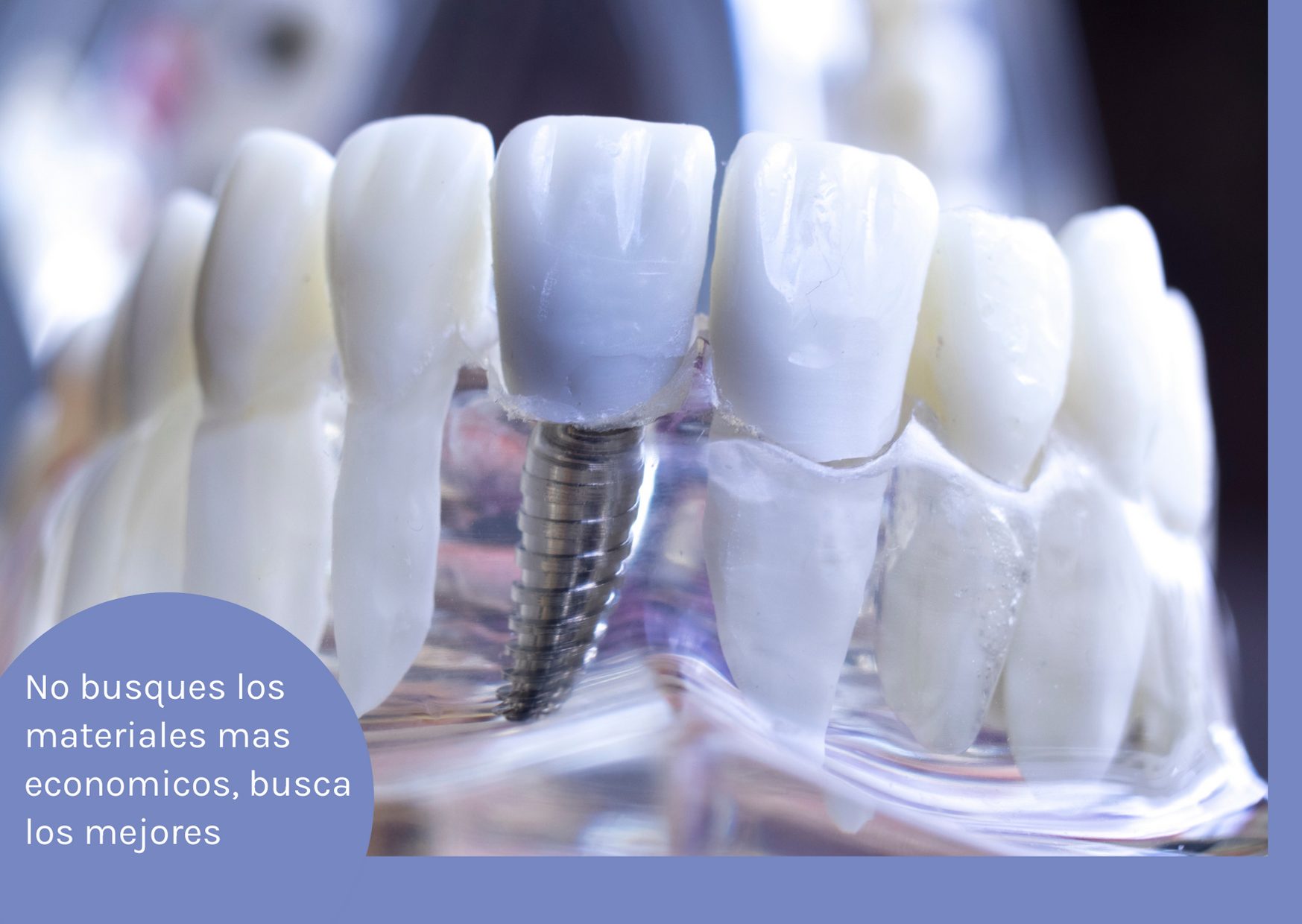How to avoid Dental Implant Mistakes
If you’re considering a dental implant but feeling unsure about the procedure, don’t worry! Your cautiousness indicates that you’re well-informed and care about your health. To further put your mind at ease, let’s go over some common Dental Implant Mistakes that you should avoid. While implants are an effective and popular treatment for tooth loss, it’s important to understand what can go wrong when mistakes are made by either the patient or dentist.
It’s possible that nothing negative may occur because our bodies are remarkable machines that can sometimes overcome less-than-ideal circumstances. However, if we recognize when something is not done correctly and take measures to prevent it, we can greatly increase the success of our implants in the short, medium, and long term. In the following sections, I will outline three frequent mistakes that people make when it comes to dental implants, and provide tips on how to avoid them.
- How Much Does A Dental Implant Cost In Colombia In 2023
- Your Guide to Sparkling Smile: Tips on Caring for Teeth After Dental Implant Surgery
- Dental Implants
- 5 Ways to Know if You Need Orthodontics
Dental Implant Mistakes #1: Perform the treatment with someone who is not a specialist

As dental implants are a highly effective and transformative treatment that can make you feel as though you’ve never lost a tooth, it’s not surprising that some unscrupulous individuals see an opportunity to capitalize on them. Unfortunately, this has led to a rise in the number of general dentists who take short, 3-month courses (or even shorter courses of just 15 days) in order to perform implant procedures. However, these dentists lack the specialized knowledge and training necessary to perform the procedure with optimal results.
It’s crucial to ensure that the dentist performing your implant procedure is a specialist in the field. Only certain dental specialties are qualified to perform dental implant procedures, including implantologists, periodontists, oral and/or maxillofacial surgeons, and oral rehabilitators. During your appointment with the specialist, take the opportunity to ask any questions and clear up any doubts you may have. A good specialist will guide you through the entire process and ensure a successful treatment.
Dental Implant Mistakes #2: Looking for the cheapest price and low-cost inputs

When it comes to your health, it’s important to avoid seeking out the cheapest option or the place with the most discounts. However, it’s also important not to blindly trust that the most expensive option is always the best. Unfortunately, many patients have fallen into this trap, only to discover that the treatments they received were subpar. In some cases, teeth that didn’t need crowns were completely carved down, while in other cases, teeth were unnecessarily removed for implants when they could have been saved. Additionally, poorly designed smiles have resulted in bad breath and bleeding gums. These issues can arise when patients are swayed by the appeal of a supposedly “expensive” and “exclusive” celebrity-friendly location.
In the case of dental implants, it’s important to recognize that the use of cheaper supplies can actually end up making the final result more expensive. Personalized pillars, which connect the screw to the crown, are often necessary and can add significant cost. Crowns for implants are also more expensive than traditional crowns, as they require more labor and specialized attachments, often imported or made to measure. Bone or membrane grafts may also be necessary in some cases, further increasing the cost. These components are expensive for good reason: they are made with the highest quality materials and have been thoroughly tested in numerous studies.
In order to be more competitive on price, some places may opt for non-Invima approved materials, use laboratories that are not regulated, or import products from countries where such materials are produced en masse without proper long or short-term testing. The list of potential risks associated with these practices is lengthy.
To avoid falling victim to subpar materials and service, it’s best to seek out a provider that balances quality and cost. Look for a provider that offers the best quality implants and specialists without overcharging you. If given options for different qualities of supplies or implants, it’s always advisable to choose the highest quality option. Consult with your dentist on which option he or she would choose for their own family, and invest in yourself by selecting the best possible option for your long-term oral health. After all, you deserve the best.
Dental Implant Mistakes #3: Not taking care of yourself correctly and changing your habits

Let me tell you a personal experience that highlights the importance of following certain recommendations for successful dental implant treatment. My mother was a heavy smoker for many years and when she consulted me, as a dentist and her daughter, about the best advice for her implant treatment, I simply told her to quit smoking. To my surprise, she actually quit smoking and has had her dental implants for over a decade now with great success.
The reason why smoking can adversely affect dental implant treatments is due to its impact on the body’s oxygenation. Smoking reduces oxygen supply to the lungs and other parts of the body, which, in turn, affects the body’s ability to regenerate itself. This reduced capacity for regeneration can cause various types of treatments to fail. While smoking is not a contraindication, it significantly decreases the success rate of dental treatment.
Apart from this, you must follow the post-operative instructions given by your specialist. Many people think that simply placing the implants will yield satisfactory results, but that’s not the case. In fact, proper care after the surgery is a crucial factor for implant success. This includes taking enough rest, following the hygiene instructions given by the specialist, and avoiding the proliferation of bacteria in the mouth, which is one of the major enemies of dental treatments. Therefore, it’s essential to take care of your oral hygiene and follow your dentist’s instructions to ensure the longevity of your dental implants.


